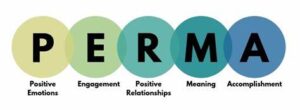How Healthy Are Your Relationships?
Relationships are the foundation of our lives. The people we surround ourselves with, from friends and family to romantic partners and colleagues, have an enormous influence on our happiness, health, and overall wellbeing. But how can we determine if our relationships are truly nourishing or potentially toxic? We will explore the characteristics of healthy relationships, learn to spot red flags, establish healthy boundaries, and cultivate deeper bonds with the people who matter most.
Characteristics of Healthy Relationships
Relationship scientists have identified several key factors that characterize strong, high-quality non-intimate as well as intimate relationships. These include:
Emotional Intimacy
Emotional intimacy refers to the experience of feeling close, connected, and mutually understood within an intimate relationship, friendship, or other types of relationship. Partners in high-quality relationships feel comfortable expressing vulnerability, sharing hopes and fears, and relying on each other for emotional support. According to relationship researcher Harry Reis, feeling understood by a partner during vulnerable disclosures predicted relationship well-being over time. Fostering intimacy requires openness, empathy, and reciprocal self-disclosure between partners. Expressing affection through words, thoughtful acts, gifts or quality time and full presence with a partner enhances emotional intimacy.
Healthy Communication in Relationships
Strong communication skills, such as clearly expressing needs and listening actively without judgement, are essential for healthy relationships. Partners should strive for open and frequent communication, without topics that feel “off-limits”. Misunderstandings should be clarified quickly, before small issues escalate into major conflicts characteristic of toxic relationships. The research of relationship psychologist and author of The Relationship Cure, John Gottman, revealed four communication styles that predicted relationship dissolution and divorce: criticism, contempt, defensiveness, and stonewalling. Partners should avoid these destructive responses.
According to relationship researcher Shelly Gable, the way we respond to our partner’s expressions of their needs and experiences profoundly influences relationship health. Gable identified four response styles: active-constructive (enthusiastically supporting your partner’s news), passive-constructive (quietly but positively acknowledging their sharing), active-destructive (expressing criticism or disinterest when your partner shares something meaningful), and passive-destructive (ignoring or failing to respond to your partner’s bid for sharing news). An active-constructive response style predicted the highest relationship satisfaction, intimacy, trust in relationships, passion, and wellbeing in multiple studies. Learning to respond positively when your partner expresses vulnerabilities or shares joy fosters the mutual intimacy essential for an extraordinary relationship.
Trust and Reliability
Feeling secure and confident in a partner’s care and dependability builds trust. According to Gottman, consistent responsiveness and follow-through on promises built trust and satisfaction over time in couples. Reliability deepens when partners can be vulnerable without fear of exploitation. Research by Jeffrey Simpson shows partners who demonstrate dependability foster a secure attachment bond.
Constructive Conflict Management
Disagreements are inevitable, but how conflicts are managed determines relationship quality. Healthy relationships involve respectfully airing grievances, actively listening, compromising, and aiming for win-win resolutions. Shelly Gable found the way we respond to a partner’s distress during conflict impacts relationship health. An active-constructive response expresses care, understanding, and a cooperative problem-solving attitude. This builds intimacy. Destructive responses like contempt or defensiveness inflict damage.
Mutual Support
Partners in robust relationships provide emotional, instrumental, and informational support. This includes comforting each other when distressed, assisting with practical needs, and offering advice. John Gottman’s research revealed that successful couples maintain a 5:1 ratio of positive to negative interactions. Support must flow reciprocally, with both partners contributing affection and care.
Respect and Appreciation
Mutual respect preserves each partner’s dignity and upholds the relationship. Partners avoid criticizing each other’s core values and beliefs. Expressing genuine gratitude and appreciation for each other’s efforts strengthens bonds. Positive psychologist and author of The How of Happiness, Sonja Lyubomirsky’s experiments revealed gratitude journaling and expressing appreciation to a partner led to increased happiness and relationship vitality. Taking responsibility for one’s actions and words demonstrates respect in relationships. Using Gable’s constructive response styles can go a long way in showing respect and appreciation in any relationship.
Cultivating a nourishing intimate relationship requires upkeeping these pillars regularly, not just during conflicts or crises. With daily maintenance through affection, quality time, and conscientious care for each other’s needs, partners can sustain extraordinary intimacy and fulfillment.
Recognizing Healthy vs Unhealthy Relationship Patterns
Using the above criteria, we can start evaluating our own relationships more objectively. Healthy relationships generally involve:
- Shared power, autonomy, and equality between partners
- Openness, honesty, and respectful communication
- Compromise and fairness in resolving differences
- Emotional and practical support for each other’s goals and needs
- Expressions of affection initiated mutually by both partners
- Security, trust in relationships, and acceptance of each other’s flaws
Conversely, the following patterns may indicate an unhealthy or toxic relationship:
- One partner dominating decision-making or limiting the other’s autonomy
- Lying, secrecy, avoidant or abusive communication
- One partner refusing to compromise or attacking the other
- Disregard for each other’s dreams or emotional needs
- Affection only given conditionally or solely to “keep the peace”
- Possessiveness, jealousy, shaming, or manipulation of insecurities
While all relationships experience ups and downs, recurring unhealthy patterns like these inflict substantial damage if left unaddressed. John Gottman found relationships where partners failed to repair conflicts successfully after an argument predicted relationship dissolution. Responsiveness to each other’s needs during conflicts protects bonds.
Assessing Relationship Quality Across Contexts
The components of healthy relationships remain fundamentally the same across different types of relationships. However, each context also has unique dynamics worth examining.
For romantic relationships, passion and physical intimacy introduce additional complexity. While intense romance eventually stabilizes, couples should still nurture intimacy, affection, and open sexual communication in long-term partnerships. Emotional and sexual needs must be balanced through compromise. Shared core values and life goals also become crucial. Research by Reis and Gable reveals self-disclosure and responsive support between partners built intimacy and sexual satisfaction.
Parent-child relationships profoundly shape us, making emotional availability, secure attachment, understanding, and dependability especially critical. As children mature, parents must adapt by allowing more autonomy while still providing guidance and support. Reestablishing mutual respect and friendship as adults heals childhood wounds. Studies by attachment theory pioneer, Mary D. Ainsworth demonstrated responsive and consistent caregiving fosters secure parent-child bonds.
With friends, emphasis falls on companionship and emotional support. Friends uplift us through shared fun, interests, and experiences. Since friends play complementary roles to partners and family, healthy boundaries prevent overdependence. While friends come and go through life’s changes, sustaining a few lifelong friendships brings deep fulfillment. Researchers find that self-disclosure, validation, and loyalty distinguish close friendships.
At work, relationships enable collaboration, knowledge-sharing, and innovation. Performance improves when colleagues trust and support each other through challenges. Yet, professionalism also demands reasonable boundaries around intimacy, competition, and conflict. Leadership must demonstrate integrity, spur motivation through inspiration, and provide coaching and resources for employees to thrive. Organizational research by Jody Hoffer Gittell, author of Transforming Relationships for High Performance, shows caring, trusting relationships between coworkers and teams foster organizational performance and resilience.
In all contexts, self-awareness and emotional intelligence allow us to become better friends, partners, parents, and leaders. The principles for nurturing healthy relationships endure, but must be adapted sensitively based on the unique needs and dynamics of each type of relationship. Investing in the quality of our relationships pays dividends across our lives.
Setting Healthy Boundaries in Relationships
“Boundaries are expectations and needs that help you feel safe in all your relationships. They are directly related to protecting your integrity, health and safety and are beyond just mere preferences.”
Therapist and author of Set Boundaries, Find Peace: A Guide to Reclaiming Yourself, Nedra Tawwab Glover states, “Boundaries are expectations and needs that help you feel safe in all your relationships. They are directly related to protecting your integrity, health, and safety and are beyond just mere preferences.”
While healthy relationships require reciprocal care for each other’s needs, each person must balance their own wellbeing and uphold their boundaries. Boundaries are guidelines defining acceptable behavior that protect our self-respect, values, and emotional health. Defining and communicating our boundaries transforms even difficult relationships.
Common relationship boundaries include:
Physical boundaries: Controlling physical proximity and touch to feel safe and prevent violations of consent. Partners must refrain from unwanted contact, harassment, or abuse.
Emotional boundaries: Managing what private information, thoughts, or feelings are shared or withheld. This prevents feeling emotionally drained or exploited.
Time boundaries: Determining when you are available to others vs. when you reserve time for self-care or solitude. This maintains balance and prevents burnout.
Financial boundaries: Managing how money is spent, invested, or shared in relationships. This preserves financial security and independence.
Boundaries communicate your own behavior in response to a situation; they don’t dictate someone else’s behavior. There’s a difference between setting boundaries and setting rules. You can set rules to have the kind of relationship that you want but those are different from boundaries and are mutually set in a relationship.
While boundaries may seem rigid or inhospitable, they foster trust when communicated effectively. For example, “I want to support you, but I need rest. Let’s talk tomorrow,” upholds a time boundary gently. Rigid “walls” merely conceal hurt without resolving it. Boundary setting requires courage, conviction, and compassion. Research by psychologist and pioneer of family systems therapy, Salvador Minuchin revealed appropriate boundaries help couples and families regulate closeness while retaining individual identities.
Communicating Boundaries Constructively
Once you identify your own boundaries, communicating them effectively strengthens your relationships. Guidelines include:
- Using clear, direct, assertive statements, not hints. Say “I need to leave for work now” not “I’m in a rush.”
- Avoiding aggressiveness or manipulation. “I won’t lend you any more money” is better than “You’re so irresponsible with money.”
- Explaining the reason for a boundary. “I want to rest after this busy week” gives context.
- Refraining from apologies or guilt. You have a right to boundaries.
- Remaining open to discussion and compromise, if appropriate. Some boundaries can be flexible.
- Consistently upholding boundaries you set. Following through establishes trust.
It also helps to consider your partner’s boundaries and listen openly when they share them. If you have trouble respecting others’ boundaries, reflecting on any past traumas or control issues may reveal underlying reasons to address. Respecting each other’s boundaries facilitates a nurturing relationship.
Cultivating Positive Relationships
Establishing boundaries prepares the fertile soil for extraordinary relationships to take root and grow. Here are research-backed techniques for actively strengthening your most important relationships:
Practice gratitude – Focusing on the positive transforms relationships exponentially. Expressing genuine, specific appreciation, from thanking your partner for making coffee to telling a friend how much their advice meant, builds gratitude and devotion according to experiments by Lyubomirsky.
Foster intimacy – Emotional and physical intimacy release hormones like oxytocin and dopamine that biologically enhance trust and bonding. Make time for genuine self-disclosure, affection, eye contact, and shared activities that release these hormones regularly.
Resolve conflicts skillfully – When disagreements inevitably arise, avoid contempt, defensiveness, and stonewalling which can inflict lasting damage according to John Gottman. Instead, make the relationship, not the conflict, primary by affirming your shared goals and commitment to resolving the issue respectfully.
Share meaningful activities – Jointly engaging in activities that align with your core values and purpose, from volunteering to raising children, unifies partners deeply. Find shared interests to enrich your bond.
Listen fully – Truly listening without interruption and reflecting back what you heard before responding prevents misunderstandings. Feeling genuinely heard strengthens emotional intimacy.
Laugh together – Humor and playfulness relieve stress, enhance resilience, and boost enjoyment of each other’s company according to distinguished professor of psychology and author of Love 2.0, Barbara Fredrickson’s research on positive emotions. Find lighthearted ways to interact and increase pleasurable experiences together.
While nurturing healthy intimate relationships takes commitment and skills, research shows the effort pays exponential dividends for our health, longevity, and life satisfaction. By courageously developing emotional intelligence and practicing research-backed techniques, we can transform even strained relationships into enduring sources of love and support. Our most cherished people deserve nothing less than our full generosity of spirit.
The Nature of Love in Relationships
Love is the most profound emotion shared between partners in an intimate relationship. But what defines a healthy, nourishing love versus an unhealthy obsessive one? According to research by social psychologist Elaine Hatfield, passionate love is characterized by intense longing for union with the beloved, shared euphoria, and a rollercoaster of emotion. Companionate love develops over time, with less thrills but deeper intimacy, commitment and affection between partners. Secure attachment and expressing care for each other’s needs fosters companionate love. Obsessive love involves addictive craving, jealousy and preoccupation with the partner at the expense of one’s own needs. This power imbalance leads to unhappiness. The healthiest relationships transition from passionate to companionate love, with partners retaining independence and supporting each other’s growth. Expressing affection, balancing intimacy with time apart, and cherishing the relationship above transient romantic excitement sustains a deeply loving connection.
Applying Relationship Research to Build Extraordinary Connections
In summary, the research on relationships reveals that healthy bonds are defined by open communication, mutual care and support, intimacy balanced by autonomy, constructive conflict resolution, and mature companionate love. While all relationships take effort, choosing partners with whom we can regularly practice research-backed techniques for deepening trust, intimacy and satisfaction gives us the greatest chance at sustaining an extraordinary connection that enriches our lives. The wisdom from decades of relationship studies can guide us in nurturing the most meaningful relationships we will ever have.
Great Things Never Came From Comfort Zones
Say goodbye to that rut you’ve been stuck in and hello to a brighter future with enLiven Wellness Life Coaching team. Get started today by scheduling a consultation with our team.
Related Resources
enLiven Wellness Coaching, llc is a participant in the Amazon Services LLC Associates Program, an affiliate advertising program designed to provide a means for website owners to earn advertising fees by advertising and linking to amazon.com, audible.com, and any other website that may be affiliated with Amazon Service LLC Associates Program. As an Amazon Associate [I or we] earn from qualifying purchases.
Additional Articles in this Series
This article is part of a series of articles on the five pillars of well-being. The pillars are positive emotion, engagement, relationship, meaning, and accomplishment.

















